Kaist
Korean

Awards News
College of Engineering News
-

Professor Yim Decorated with the Chongjo Order of ..
(Professo Yong-Taek Yim) Professor Yong-Taek Yim from the Department of Mechanical Engineering was awarded the highest order of merit, the “Chongjo Keunjong Medal,” bestowed to public officials by the government in celebration of Invention Day on May 27. Professor Yim was recognized for his innovative achievements to increase royalty income by introducing an IP-based management system at the Korean Institute of Machinery & Materials. He served as the president of KIMM for three years from 2014. His idea led to new approaches to help explore diverse revenue creating sources such as dividend earnings and share sales, apart from simply relying on technology transfer fees. His efforts to disseminate the in-house R&D results also led to the foundation of six tech-based startups and spinoffs, which generated 11.2 billion KRW in sales. He also helped set up three spinoffs abroad. Professor Yim said, “I pushed employee invention as a new value creator at KIMM. I thank each and every researcher and staff member at KIMM who worked so hard to create such an innovative IP-based R&D environment.”
-

Professor Cheol-Ho Jeong Honored with the DTU Lect..
Professor Cheol-Ho Jeong (Left) A KAIST alumnus and an associate professor at the Technical University of Denmark (DTU), Dr. Cheol-Ho Jeong was selected as the recipient of the Lecturer of the Year 2019 Award by DTU. Professor Jeong received his B.S., M.Sc., and Ph. D. degrees from KAIST’s Department of Mechanical Engineering in August 2007 under the supervision of Professor Jeong-Guon Ih, and has been serving as an assistant followed by associate professor at DTU’s Department of Electrical Engineering since October 2007. His research covers wide arrays of architectural acoustics, environmental acoustics, psychoacoustics, and structural acoustics. Every year, the students at DTU nominate one or two lecturer(s) of the year. The award celebrates and honors the selected lecturers for showing great commitment not only to education itself, but also to their communication and engagement with the students. This year, the DTU student union Polyteknisk Forening nominated Professor Jeong for his outstanding course evaluations for his excellent teaching over the years. One of the student testimonies for the award read, "Professor Jeong is one of the best teachers I have ever had at DTU. He is very humane and approachable." The awards ceremony was held on May 3 at DTU during the 2019 Annual Commemoration Party and Professor Jeong was warmly congratulated by the Crown Prince Couple of Denmark. The other award was given to Professor Robert Madsen from DTU’s Chemistry department. ©Photo and Quote: Ulrik Jantzen, Büro Jantzen, Camilla Christiane Hermann.
-
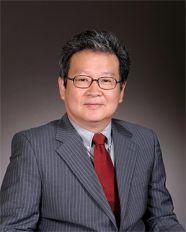
Chair Professor Seong Honored with Don Miller Awar..
(Professor Poong-Hyun Seong) Chair Professor Poong-Hyun Seong from the Department of Nuclear & Quantum Engineering was selected as the recipient of the Don Miller Award by the American Nuclear Society. The award, established in 2009 by the American Nuclear Society in honor of former ANS President Don Miller, is given to an individual or team who has made a significant contribution to the advancement of one or both of the fields of nuclear instrumentation and control of human-machine interfaces through individual or combined activities. The award ceremony will be held on June 10 during the 2019 annual meeting of the ANS in Minneapolis in the US. Professor Seong is being recognized for his pioneering research and training in the fields of nuclear instrumentation control and human factor engineering at Korea. His research significantly contributed to safety improvements in nuclear power plants and have been recognized worldwide. Professor Seong, a fellow of the ANS, now serves as the first vice chair of the International Nuclear Societies Council and will take up the role of chair in 2021. Professor Seong said that, “ Korea is one of the most outstanding countries working on research in the fields of nuclear instrumentation control and human factors. KAIST PhDs are teaching at many universities at home and abroad. I look forward this award bringing new hope to our nuclear research and the domestic nuclear industry, which is now in difficult times.”
-

Professor Seoktae KANG received an IDEA award from..
Seoktae KANG, an associate professor at the department of civil and environmental engineering, received JSWE-IDEA prize in March 8th at the spring conference of JSWE (Japan society of water environment). This award is supported by IDEA consulting group in Japan, and the award is given to middle-career Asian researchers on water engineering during the annual conference of JSWE. At the 2019 award ceremony, Prof. Kang presented his research work entitled “Ultra-fast electrochemical oxidation of micropollutants by flow-through conductive membrane system”, which proposed novel application of carbon nanotube-based hollow membrane-type electrodes to overcome the oxidation of electrodes, side-reaction of intermediates, and mass-transfer limitation of the existing system.
-
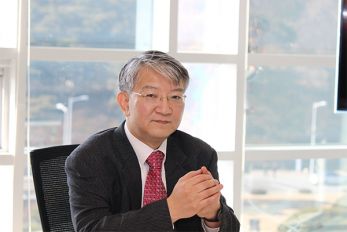
Distinguished Professor Sang Yup Lee Honored with ..
(Distinguished Professor Sang Yup Lee from the Department of Chemical and Biomolecular Engineering) Distinguished Professor Sang Yup Lee from the Department of Chemical and Biomolecular Engineering was honored to be the laureate of the 23rd NAEK Award. The NAEK (National Academy of Engineering of Korea) Award was instituted in 1997 to honor and recognize engineers who have made significant contributions to the development of the engineering and technology field at universities, industries, and institutions. Every year, it is conferred to only one person who has achieved original and world-leading research that has led to national development. Distinguished Professor Lee is a pioneering scholar of the field of systems metabolic engineering and he was recognized for his significant achievements in the biochemical industry by developing novel microbial bioprocesses. In particular, he is globally renowned for biological plastic synthesis, making or decomposing polymers with microorganisms instead of using fossil resources. He has produced numerous high-quality research breakthroughs in metabolic and systems engineering. In 2016, he produced an easily degradable plastic with Escherichia coli (E. coli). In 2018, he successfully produced aromatic polyesters, the main material for PET (poly ethylene terephthalate) from E. coli strains. He also identified microorganism structures for PET degradation and improved its degradability with a novel variant. His research was ranked number one in the research and development division of Top Ten Science and Technology News 2018 announced by Korean Federation of Science & Technology Societies. He is one of highly cited researchers (HCR) ranked in the top 1% by citations for their field by the Clarivate Analytics.
-

The Future Mobility of the Year 2019
KAIST announced the Future Mobility of the Year (FMOTY) 2019. The winners are Volvo 360C, Toyota e-Palette, and Toyota Concept-i WALK. FMOTY are the first awards that recognizes concept cars that exhibit innovative services and practical transportation technology in three categories: private mobility, public and commercial mobility, and personal mobility. Figure 1. The winner in the private mobility division, the Volvo 360C In the private mobility division, the award went to the Volvo 360C. With targeted routes of roughly 186 miles, this vehicle has an ambitious service goal to replace airplanes by traveling these routes with great comfort. Goro Okazaki, a journalist with Car and Driver Japan, said, “The Volvo 360C clearly shows how highly personalized autonomous driving can change the future.” Figure 2. The winner in the public mobility division, the Toyota e-Palette The Toyota e-Palette was the winning car in commercial mobility division. This vehicle provides the best solution as a mobile service platform by transforming itself into mobile hospitals, hotels, stores and food trucks. Carlo Calderón, a journalist for Autopista Spain, said, “It has a great strength in remodeling its indoor and outdoor spaces according to various commercial uses.” Figure 3. The winner in the personal mobility division, the Toyota Concept-i WALK In the personal mobility division, the award went to the Toyota Concept-i WALK. It was recognized for having an exquisite user environment and artificial intelligent agent, along with an excellent completion. Jun Miao, a journalist with MJ CarShow China, said, “It is aesthetically pleasing. Beyond the upright control of conventional personal mobility, it allows agile control with a joystick.” FMOTY conducted a screening process for 45 concept cars over three months and 16 renowned automotive experts from 11 countries participated as judges for this award, including Editor in Chief of BBC Top Gear Magazine Charlie Turner and European Bureau Chief of Automobile Magazine Georg Kacher. The judges said that FMOTY was born to propose a new aspect of future mobility, and in terms of evaluating technical and social values of concept cars, FMOTY carries great significance. Kyung-soo Kim, Dean of the Cho Chun Shik Graduate School of Green Transportation said, “Globally renowned experts in the automotive field participated as judges to elevate the prestige and fairness of the awards. KAIST members were excluded from the entire judging process. I believe that the FMOTY Awards will expand public attention from the present to the future.” Details can be found on the official website of FMOTY ( www.fmoty.org ).
-
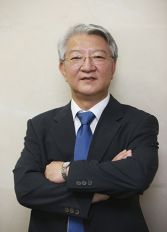
Distinguished Professor Sang Yup Lee Announced as ..
(Distinguished Professor Sang Yup Lee) Distinguished Professor Sang Yup Lee from the Department of Chemical and Biomolecular Engineering will be awarded the 2018 Eni Advanced Environmental Solutions Prize in recognition of his innovations in the fields of energy and environment. The award ceremony will take place at the Quirinal Palace, the official residence of Italian President Sergio Mattarella, who will also be attending on October 22. Eni, an Italian multinational energy corporation established the Eni Award in 2008 to promote technological and research innovation of efficient and sustainable energy resources. The Advanced Environmental Solutions Prize is one of the three categories of the Eni Award. The other two categories are Energy Transition and Energy Frontiers. The Award for Advanced Environmental Solutions recognizes a researcher or group of scientists that has achieved internationally significant R&D results in the field of environmental protection and recovery. The Eni Award is referred to as the Nobel Award in the fields of energy and environment. Professor Lee, a pioneering leader in systems metabolic engineering was honored with the award for his developing engineered bacteria to produce chemical products, fuels, and non-food biomass materials sustainably and with a low environmental impact. He has leveraged the technology to develop microbial bioprocesses for the sustainable and environmentally friendly production of chemicals, fuels, and materials from non-food renewable biomass. The award committee said that they considered the following elements in assessing Professor Lee’s achievement: the scientific relevance and the research innovation level; the impact on the energy system in terms of sustainability as well as fairer and broader access to energy; and the adequacy between technological and economic aspects. Professor Lee, who already won two other distinguished prizes such as the George Washington Carver Award and the PV Danckwerts Memorial Lecture Award this year, said, “I am so glad that the international academic community as well as global industry leaders came to recognize our work that our students and research team has made for decades.” Dr. Lee’s lab has been producing a lot of chemicals in environmentally friendly ways. Among them, many were biologically produced for the first time and some of these processes have been already commercialized. “We will continue to strive for research outcomes with two objectives: First, to develop bio-based processes suitable for sustainable chemical industry. The other is to contribute to the human healthcare system through development of platform technologies integrating medicine and nutrition,” he added.
-
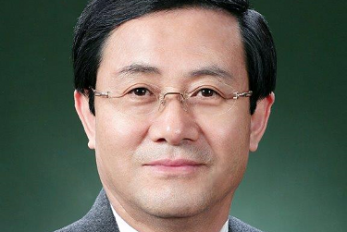
Professor Emeritus Jung Ki Park Won the IBA Techno..
(Professor Emeritus Jung Ki Park) Professor Emeritus Jung Ki Park from the Department of Chemical and Biomolecular Engineering received the IBA Technology Award from the International Battery Association (IBA). IBA 2018 was held from March 11 to 16 on Jeju Island, which was the first time it was hosted in Korea. The conference was an excellent opportunity to let the world know the level of the Korean rechargeable battery industry and its technology. Professor Park delivered his keynote speech titled Advances in Lithium Batteries in Korea at the conference and received the IBA Technology Award as the first Korean recipient. ?Professor Park is a world-renowned scholar who was a groundbreaker in the rechargeable battery industry. He was recognized by the IBA Award Committee for his contributions carrying out research and development, fostering competent people, and enhancing the lithium rechargeable battery industry in Korea over the last 30 years. Professor Park said, “It is my great honor to receive this award, which is the best international award in the field of rechargeable batteries. I would like to share this with my colleagues and students. As competition in the rechargeable industry intensifies, systemic cooperation among industries, academia, and government is needed for the continued development of the battery industry in Korea.
-
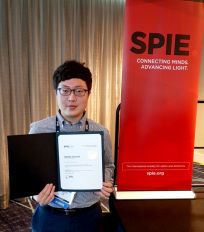
Seong-Tae Kim Wins Robert-Wagner All-Conference Be..
(Ph.D. candidate Seong-Tae Kim) Ph.D. candidate Seong-Tae Kim from the School of Electrical Engineering won the Robert Wagner All-Conference Best Student Paper Award during the 2018 International Society for Optics and Photonics (SPIE) Medical Imaging Conference, which was held in Houston last month. Kim, supervised by Professor Yong Man Ro, received the award for his paper in the category of computer-aided diagnosis. His paper, titled “ICADx: Interpretable Computer-Aided Diagnosis of Breast Masses”, was selected as the best paper out of 900 submissions. The conference selects the best paper in nine different categories. His research provides new insights on diagnostic technology to detect breast cancer powered by deep learning.
-
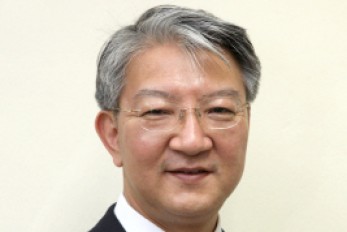
Distinguished Professor Sang Yup Lee Named NAI Fel..
(Distinguished Professor Sang Yup Lee) Distinguished Professor Sang Yup Lee of the Department of Chemical and Biomolecular Engineering was named to the National Academy of Inventors in the US. He is the first Korean scholar ever elected as a NAI fellow. The NAI is a non-profit member organization with over 4,000 individual inventors and fellows spanning more than 250 institutions worldwide. It is comprised of universities as well as governmental and non-profit research institutes. The academy was founded in 2010 to recognize and encourage inventors with patents from the US Patent and Trademark Office. So far, 575 fellows from 229 institutions have been elected. The academy said Professor Lee has been recognized for fellowship induction as he has demonstrated a highly prolific spirit of innovation in creating or facilitating outstanding inventions that have made a tangible impact on quality of life, economic development, and the welfare of society. Distinguished Professor Lee, a pioneering researcher and scholar in the field of systems metabolic engineering, was ranked in the top 1% of highly cited researchers (HCR) this year. Over the past 11 years, he published more than 130,000 articles in prestigious journals around the world. He has been cited more than 34,000 times since he started working at KAIST in 1994. He is also the first Korean ever elected to both the National Academy of Sciences (NAS) and the National Academy of Engineering (NAE) in the US, becoming the one of 13 foreign scholars in the world holding two prestigious institutions’ fellowships. Dr. Lee is currently the dean of KAIST Institutes, the world-leading institute for multi and interdisciplinary research. He is also serving as co-chair of the Global Council on Biotechnology and is a member of the Global Future Council on the Fourth Industrial Revolution at the World Economic Forum.
-
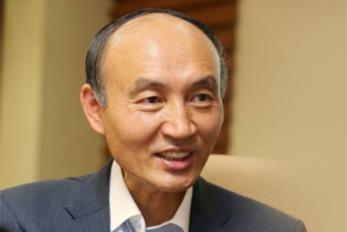
Professor Dong Ho Cho, Awarded at the 13th Haedong..
Professor Dong Ho Cho of the School of Electrical Engineering at KAIST received an award at the 13th Haedong Conference 2017 in Seoul on the first of December. The Korean Institute of Communications and Information Sciences recognized Professor Cho for his significant contributions in the field of mobile communication networks. He has carried out groundbreaking research on mobile systems, including architecture, protocols, algorithms, optimization, and efficiency analysis. As a result, he has produced 73 papers in renowned international journals, 138 papers at international conferences, and filed 52 international patents and 121 domestic patents. In addition, he transferred 14 of the patents he filed to Korean and international companies.
-
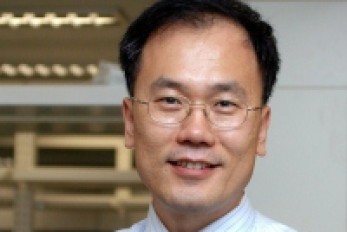
Professor Je-Kyun Park, Awarded by The Korean BioC..
On November 9, Je-Kyun Park from the Department of Bio and Brain Engineering at KAIST received an award from the 2017 Fall Meeting of The Korean BioChip Society held in Paradise Hotel Busan, Korea. This year’s meeting recognized Professor Park for developing lab-on-a-chip and microfluidic analytical technologies. The Korean BioChip Society is a corporation of biochip professional established in 2006 for the development of biochip technology. Every year, the Society selects a recipient based on the nominees’ academic achievements and contributions to bio-fusion industry. Professor Park served on the international editorial boards of renowned international journals in related fields, including Biosensors and Bioelectronics and Lab on a Chip. He was also the Committee Chairman of MicroTas in 2015.

